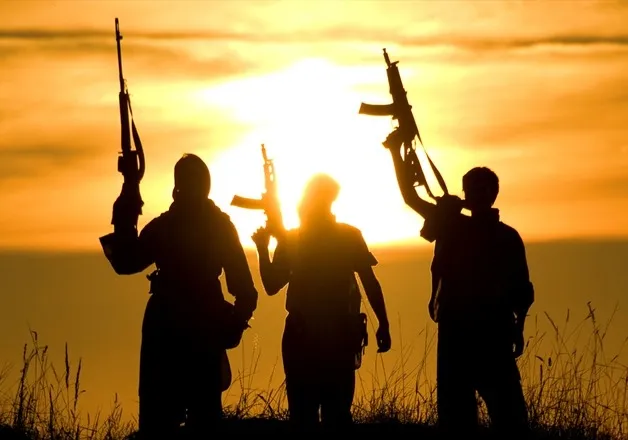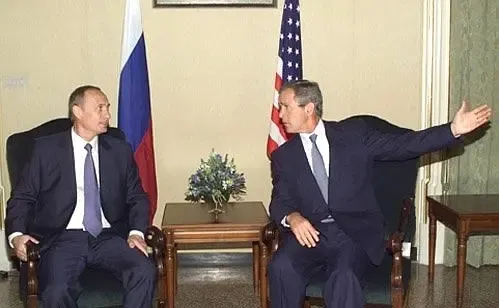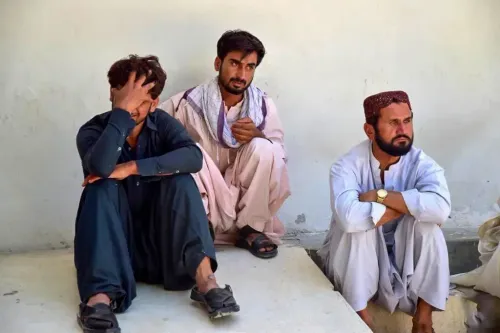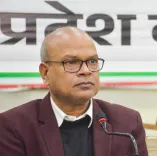Is Pakistan's Denial of Its Own Terrorists Haunting Its Relations with Afghanistan?

Synopsis
Key Takeaways
- Pakistan has a history of denying its nationals involved in terrorism.
- Afghanistan faces similar challenges with Pakistan.
- The Durand Line remains a significant point of contention.
- Recent accusations highlight the complexities of regional security.
- Deportation of nationals could expose Pakistan's duplicity.
New Delhi, Nov 3 (NationPress) Pakistan's longstanding practice of denying responsibility for its nationals who engage in terrorist activities abroad has resurfaced. While India has long voiced its grievances on this matter, Afghanistan is now facing similar challenges.
Talks between Pakistan and Afghanistan, which have recently entered a tenuous ceasefire, are encountering numerous obstacles. The contentious issue of the Durand Line remains a primary source of friction, and now Afghanistan has voiced concerns that Pakistan is unwilling to repatriate its citizens.
For many years, a group of Pakistani terrorists has been active in Afghanistan. Afghan security forces have made numerous arrests as these individuals have engaged in terror-related activities. However, during negotiations, Pakistan flatly refused to accept these individuals back, insisting they remain in Afghanistan.
During discussions, Afghanistan stated that it would deport these terrorist nationals, but Pakistan disagreed, insisting that Kabul should control these elements instead of deporting them.
This disagreement has escalated tensions between the two nations, making peace seem distant.
Indian officials have characterized this as a classic maneuver by Islamabad. For years, Pakistan has dispatched its nationals to India to execute terror attacks, only to deny their nationality when apprehended.
India has frequently proposed the repatriation of Pakistani nationals; however, Islamabad has consistently dismissed these claims, asserting that these individuals are not its citizens.
For instance, when Ajmal Kasab participated in the Mumbai 26/11 attacks alongside nine other terrorists, Pakistan denied his nationality. In fact, the attackers were provided with Hindu identities and instructed to wear saffron threads on their wrists. When the Pakistani media revealed Kasab's true identity, the ISI took measures to obscure the facts, even hiding his family from public view.
Pakistan has, without evidence, accused Afghanistan of harboring and supporting the Tehreek-e-Taliban, Pakistan (TTP). This has become a significant point of contention, with Kabul firmly rejecting these allegations.
Kabul has also accused Pakistan of infiltrating its territory with terrorists to conduct attacks. Recently, Afghanistan presented evidence that Pakistan was training its nationals to join the Islamic State Khorasan Province (ISKP). In an alliance with the ISKP to counter the TTP, Pakistan has committed to training and dispatching its nationals to participate in the ISKP's operations against the Taliban.
With numerous Pakistani nationals now in custody, Islamabad is resisting their deportation. Agreeing to do so would expose Pakistan's role in training terrorists for operations in Afghanistan, and thus Islamabad seeks to avoid this embarrassment by insisting they be tried and incarcerated in Afghanistan.
Despite Pakistan's denials, Zabihullah Mujahid, a spokesperson for the Taliban, revealed that during negotiations in Istanbul, the Islamic Emirate had proposed the deportation of individuals deemed a threat by Pakistan.
This proposal was rejected by Islamabad. Indian officials assert that despite acknowledging these individuals as threats, Pakistan refuses to facilitate their deportation, solely due to their nationality. Deporting them would reveal Pakistan's duplicity, as its own citizens are responsible for the turmoil.
Analysts predict that the path to peace between the two nations will remain fraught with challenges. The prevailing mistrust and issues like these only exacerbate the strained relations.










